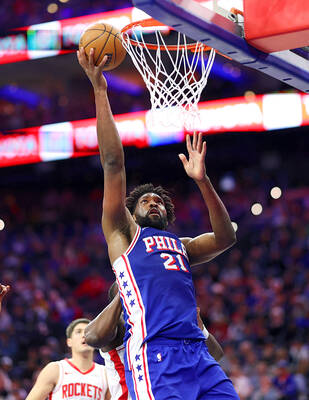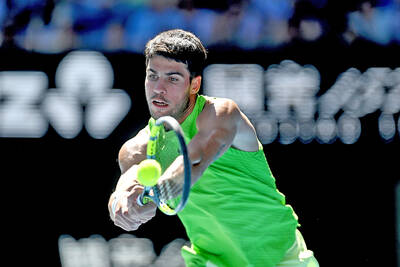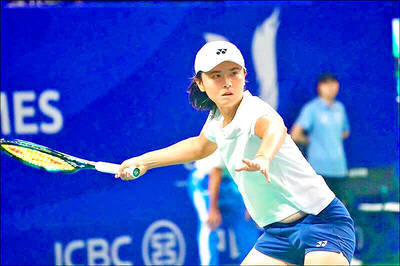A riotous crowd cheered as South Korea defeated Team USA in the men's team kendo competition in the final round of the 13th World Kendo Championship in Taipei on Sunday.
It was a historic moment, as Japan, the spiritual home of kendo, failed to take top honors for the first time in the tournament's 36-year history. South Korea, on the other hand, finally escaped second place, where it had languished for the past six tournaments.
The one-day team kendo competition was a round-robin affair, with each team offering five competitors, gaining either one point through victory or no points for draws.
Team USA turned in the most remarkable performance, besting Japan 3-2 in a semi-final match that came down to the final competitor.
In the finals, however, USA's luck ran out as South Korea captain Kim Jeong-guk delivered a decisive head strike against Marvin Kawasaki. Team USA lost the match 2-0.
USA coach Yuji Onitsuka said he wasn't surprised by his team's strong performance.
"That's what we came here to do," he said before the final match.
Many members of Team USA are second and third-generation Japanese living in the US, and had become accustomed to third place performances, such as in the previous World Kendo Championship in Glasgow, Scotland, in 2003.
Unlike other tournaments, kendo does not include a third-place consolation match, preferring to award two "third place" finishes, a reflection of the sport's oft-described origins as "the way of the samurai."
Taiwan turned in a strong performance, reaching the semi-finals before being defeated by Korea 5-0. They shared third place with Japan.
In women's team competition, Japan took first and was followed by South Korea with Germany and Canada sharing third place.
This year's tournament was notable for the presence of new, up-and-coming teams from Eastern Europe such as Poland and Bulgaria. A total of 39 teams took part in the men's team competition.
In singles competition held on Saturday, it was an all-Japan final with M. Hojo defeating T. Tanaka. A pair of Korean competitors, S. Kang and G. Oh, shared third place.
M. Hojo is a police officer from a prefecture outside Tokyo. In the championship match he showed remarkable skill, ending the match with an oh, a point scored by striking the opponent's abdomen.
His opponent, T. Tanaka, was gracious in defeat, and benefited from a very short semi-final match that required much less than the allotted five minutes to overcome his Korean opponent.
"I want to do beautiful kendo," Tanaka said after the match, adding that it was the first time he had fought against fellow countryman Hojo, who he described as a worthy opponent with great spirit.
In women's singles competition, it was an all-Japan sweep. First place went to S. Sugimoto, with K. Komuro taking second, while E. Inagaki and M. Shimokawa shared third place.
Throughout the weekend competition, a near-capacity crowd was on hand at the National Taiwan University Gymnasium showing considerable spirit and cheering loudly, as well as snapping up kendo equipment and souvenirs sold at the venue.
Taro Ariga, the CEO of an online kendo shop, says a basic set of equipment including helmet and pads can run anywhere from US$300 to US$10,000.
The shinai (bamboo sword) used in competition can be had for as little as US$50 or as much as US$200, with higher-end swords made from Japanese bamboo.
For one Taipei-area police officer who regularly practices kendo, the tournament was well worth the price of admission, as he was able to choose from a wide array of equipment for sale as well as observe world-class competition.
He said it takes an average of 10 years to gain the skills necessary to compete in world-class competition, with most local practitioners, or kendoka, simply appreciative of the exercise and conditioning, which he compared to boxing.
At the awards ceremony, teams from 49 countries gathered together one last time, celebrating the comraderie of teammates and fellow competitors, no doubt looking forward to the 14th World Kendo Championship in three years.

The Philadelphia 76ers, fueled by 36 points from Tyrese Maxey and a triple-double from Joel Embiid, on Thursday beat the Houston Rockets 128-122 in an NBA overtime thriller. Cameroonian big man Embiid scored 32 points, grabbed 15 rebounds and handed out 10 assists, posting the ninth triple-double of his career to help the Sixers end the Rockets’ three-game winning streak. Rockets star Kevin Durant scored 36 points and Amen Thompson added 17, but Thompson was scoreless in the fourth quarter. Even so, the Rockets led by nine midway through the final frame, Maxey tying it at 115-115 with 40.1 seconds left. Durant missed a

The Milwaukee Bucks’ Giannis Antetokounmpo on Friday said that he will probably be out for an extended period after hurting his right calf again after a similar injury caused him to miss eight games earlier this season. Antetokounmpo had his right calf wrapped in the first half of their 102-100 loss to the Denver Nuggets. He did not appear comfortable the rest of the night and left for good with 34 seconds remaining. “At the end, I could not move no more, so I had to stop playing,” Antetokounmpo said. The two-time NBA Most Valuable Player said he expected to undergo an MRI

Taiwanese FORTUNES: Wu Fang-hsien and Hsieh Su-wei both advanced to the last 16 of the women’s doubles, but Ray Ho was ousted in the men’s doubles Carlos Alcaraz yesterday stepped up his quest to win a maiden Australian Open as he overwhelmed showman Corentin Moutet to reach the last 16, while Taiwan’s Wu Fang-hsien and Hsieh Su-wei both advanced to the last 16 of the women’s doubles. Three-time finalist Daniil Medvedev battled through on day six at a warm and sunny Melbourne Park, as did Coco Gauff. Top seed Alcaraz was never in danger against French 32nd seed Moutet, easing through 6-2, 6-4, 6-1 at Rod Laver Arena in 2 hours, 5 minutes. It was the Spaniard’s 100th Grand Slam match and he boasts a remarkable 87-13 win-loss record,

LICENSE TO THRILL: Fans of Learner Tien, the youngest man to reach the quarter-finals in 11 years, wore ‘L Plates,’ signs for learning drivers, in support of the 20-year-old Taiwan’s Wu Fang-hsien and Japanese partner Eri Hozumi yesterday dominated eighth seeds Ellen Perez of Australia and the Netherlands’ Demi Schuurs to advance to the Australian Open quarter-finals, the furthest the Taiwanese has made it since her first appearance in Melbourne in 2020. Wu and Hozumi overpowered world No. 21 Perez and world No. 20 Schuurs 6-2, 6-2 in 1 hour, 11 minutes at 1573 Arena in much cooled temperatures since Saturday’s blazing 40°C disrupted play. World No. 34 Wu has now made it further in the Australian Open since she was knocked out in the third round in 2024. The Taiwanese-Japanese duo